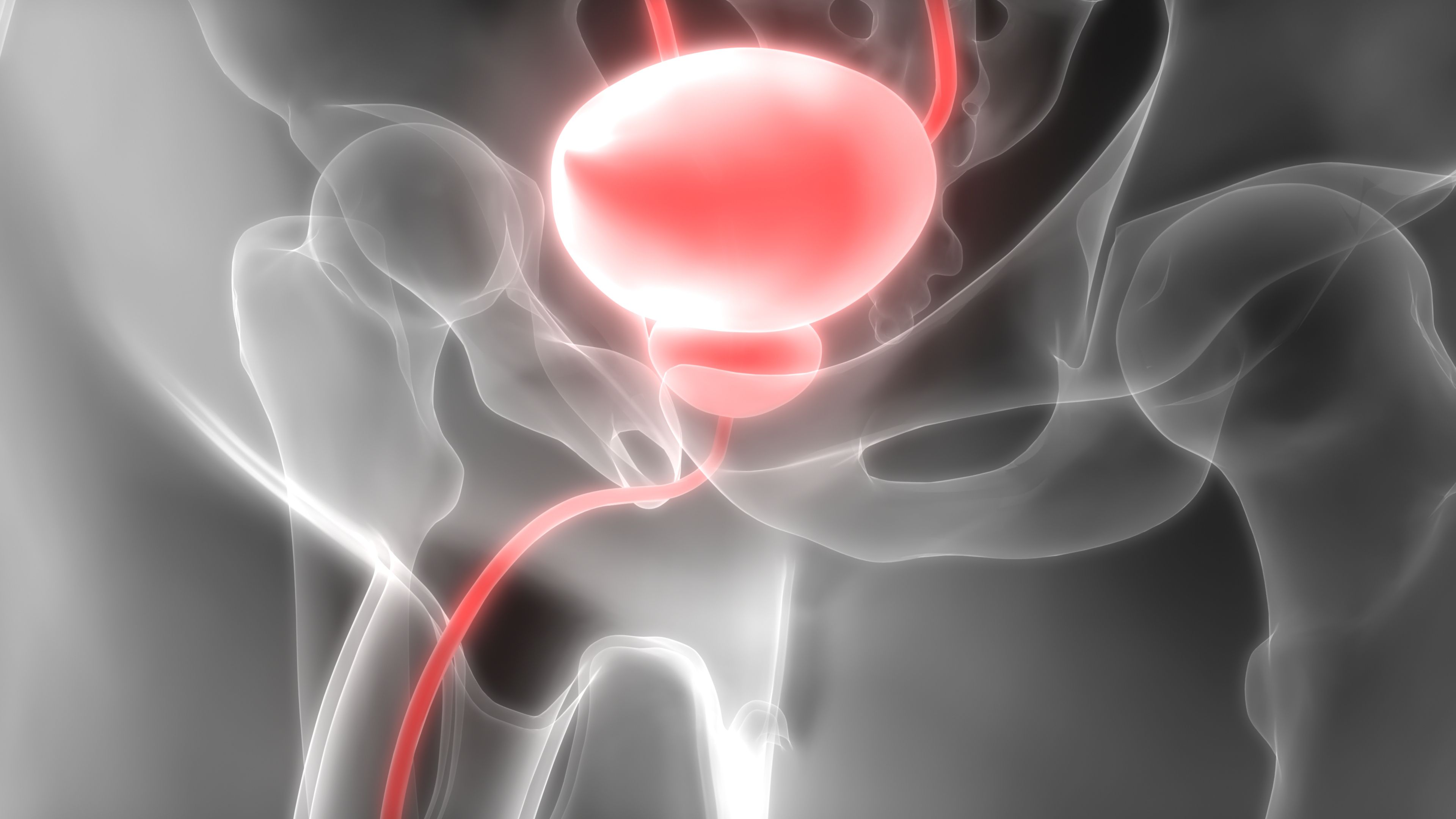Disease Volume and T Stage Affect Docetaxel/ADT Efficacy in Prostate Cancer
Docetaxel does not appear to yield meaningful absolute improvements in survival among patients with metastatic castration-sensitive prostate cancer with low-volume, metachronous disease.
Among patients with metastatic hormone-sensitive prostate cancer (HSPC), docetaxel plus androgen deprivation therapy (ADT) appeared to be most effective in those with poorer prognoses based on disease volume and primary tumor bulkiness, according to findings from a systematic review and meta-analysis published in Lancet Oncology.
The addition of docetaxel to ADT benefitted progression-free survival (PFS; HR, 0.70; 95% CI, 0.63-0.77; P <.0001) across the total assessed population (n = 2261). Additionally, the absolute 5-year PFS benefit of docetaxel was 9% (95% CI, 6%-13%).
The meta-analysis included data from the randomized phase 3 GETUG-AFU15 trial, the phase 3 CHAARTED trial, and the randomized phase 2/3 STAMPEDE trial.

Increasing clinical T stage appeared to correlate with a greater PFS benefit from docetaxel (Pinteraction = .0019), as did increasing volume of metastases (Pinteraction = .020) and synchronous disease timing (Pinteraction = .077). When investigators accounted for other interactions, only the first 2 of these—clinical T stage and tumor volume—independently impacted the effect of docetaxel.
Additionally, docetaxel did not appear to improve absolute effects at 5 years for patients with low-volume, metachronous disease. The effect of the agent was –1% (95% CI, –15% to 12%) for PFS and 0% (95% CI, –10% to 12%) for overall survival (OS). The largest improvements at 5 years, 27% (95% CI, 17%-37%) for PFS and 35% (95% CI, 24%-47%) for OS, occurred among those with high-volume, clinical T stage IV disease.
“These results delineate more clearly which patients with metastatic [HSPC] are most likely to benefit from receiving docetaxel in addition to ADT-based therapy,” the investigators wrote.
“This is of particular relevance now that international practice has started to move away from routine docetaxel use in this population. Notably, patients with poorer prognosis, because of high-volume disease, should be considered for docetaxel plus ADT, especially if access to other life-prolonging therapies is limited, or for triplet therapy, provided they are willing and fit enough receive it, and particularly if they also have a large primary tumour.”
The meta-analysis included data from the randomized phase 3 GETUG-AFU15 (NCT00104715) trial, the phase 3 CHAARTED (NCT00309985) trial, and the randomized phase 2/3 STAMPEDE (NCT00268476) trial, in which investigators recruited patients between October 2004 and March 2013. The median follow-up times were 84 (interquartile range [IQR], 79-89), 54 (IQR, 42-67), and 78 months (IQR, 63-96) in each respective trial; the median follow-up, overall, was 72 months (IQR, 55-85).
Across the 3 trials, the median patient age was 65 years old (IQR, 59-70) at randomization. Most patients had a Gleason sum score of at least 8 (63%) and had a World Health Organization performance status of 0 (75%). Of those with a recorded clinical T stage (79%), most had T stage III or IV disease at diagnosis (66%). The timing of metastatic disease was most commonly synchronous (83%).
Treatment regimens consisted of ADT alone or ADT plus docetaxel at a dose of 75 mg/m2 for 6 cycles in STAMPEDE and CHAARTED or up to 9 cycles in GETUG-AFU15. Luteinising hormone-releasing hormone agonists or antagonists, combined androgen blockade, and surgical castration were among the forms of ADT administered.
Bone metastases were reported in 77% of patients (n = 1742) across the 3 trials, and a further 277 with low-volume disease in CHAARTED had either 3 or fewer bone metastases, or lymph node disease, by definition.
The analysis also showed a clear benefit with docetaxel in terms of OS (HR, 0.79; 95% CI, 0.70-0.88; P <.0001) and failure-free survival (HR, 0.64; 95% CI, 0.58-0.71; P <.0001) in the overall population. The agent yielded a 5-year absolute benefit of 11% (95% CI, 7%-15%) for OS and 9% (95% CI, 6%-12%) for failure-free survival.
Among the limitations to these findings, investigators of both the STAMPEDE and GETUG-AFU15 trials attributed metastatic disease volume retrospectively; prospective assessment of volume occurred only in the CHAARTED trial. Patients in all 3 trials were also generally younger, and with better performance statuses than those commonly seen in clinical practice, according to investigators.
“This analysis might guide studies to identify underlying biological reasons why some patients benefit more or less from docetaxel and will inform further research to determine which, if any, groups benefit from adding docetaxel to testosterone suppression plus a potent androgen receptor signalling inhibitor,” the investigators concluded.
Reference
Vale CL, Fisher DJ, Godolphin PJ, et al. Which patients with metastatic hormone-sensitive prostate cancer benefit from docetaxel: a systematic review and meta-analysis of individual participant data from randomised trials. Lancet Oncol. 2023;24(7):783-797. doi:10.1016/S1470-2045(23)00230-9